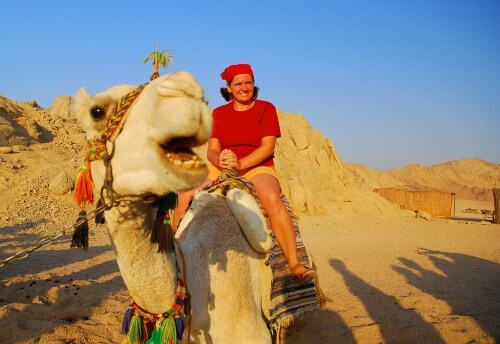At the beginning of November 2014, the United Nations World Tourism Organization (UNWTO) launched a program to encourage sustainable tourism, tourism that will not harm the environment but will help it.

At the beginning of November 2014, the United Nations World Tourism Organization (UNWTO) launched a program to encourage sustainable tourism, tourism that will not harm the environment but will help it.
Tourism is one of the fastest growing industries and currently accounts for almost 10% of the global financial turnover, it employs about 10% of the workers who produce about 6% of global exports.
The program that will be the "cutting edge" in the next ten years and is based on models of production and consumption was presented in London at the "World Travel Market". The leaders should be Morocco, France and South Korea, which will receive support from the UN Environment Program (UNEP).
The director of UNP, Achim Steiner, said that "this initiative is intended to direct the tourism industry to a sustainable path, one that will provide answers to today's challenges, that is, it will adopt and encourage a green economy that will be based on interest and not on capital."
According to the estimate, in 2030 there will be about 1.8 billion tourists in foreign countries every year. If tourism is not managed in a sustainable manner, it will cause depletion of natural resources and damage to the supply of water, the variety of species, the quality of soils, according to estimates, the tourism industry contributes about 5% of global carbon dioxide emissions.
The increase in tourism will increase the pressure on the natural environment and wildlife. Without management and protection as well as investment in making the industry green, environmental systems and thousands of species will suffer and be harmed.
According to a UNP report from 2011, if the trend of "business as usual" continues until 2050, the increase in tourism will cause a 150% increase in energy consumption, a 130% increase in greenhouse gas emissions, a 150% increase in water consumption and an increase of 250 % in the production and disposal of garbage.
Therefore, the leading tourism companies must do their best to minimize the environmental damage that the increase in tourism will cause. Already today, visitors to the Galapagos Islands and Palau pay a special tax (sometimes called a "green tax") intended to support conservation and sustainable development activities.
The three leading countries (Morocco, France and South Korea) are already taking steps to promote sustainable tourism. France, which is considered the leading destination in tourism with approximately 85 million tourists a year, recognizes the need for sustainable activity to preserve heritage and the environment. Morocco hopes to benefit from the existing conservation and the natural and cultural advantage. The South Korean government has incorporated sustainable activity principles into tourism policy.
At the Rio Conference (2012) the program was founded, which received the nickname "10YFP" and which forms the basis for the sustainable development of many industries and outlines a direction for development that will contribute to the reduction of poverty in the world. The new UNF program is supposed to add a layer and strengthen the 10YFP.
I will only add that for years several governments and entities in Africa have been selling the vital need for environmental tourism and the conduct of many reserves (mainly in southern Africa) is based on the needs of conservation and the participation of the locals in the activity and profits.
And I have already written about this in the past in the context of the Okavango reserve.
The country has a "positive feature" that it is hoped will soon turn into environmental tourism that does not harm the natural environment, tourism that contributes to the preservation of the environment, sustainable tourism. We are also allowed to learn from African countries.
